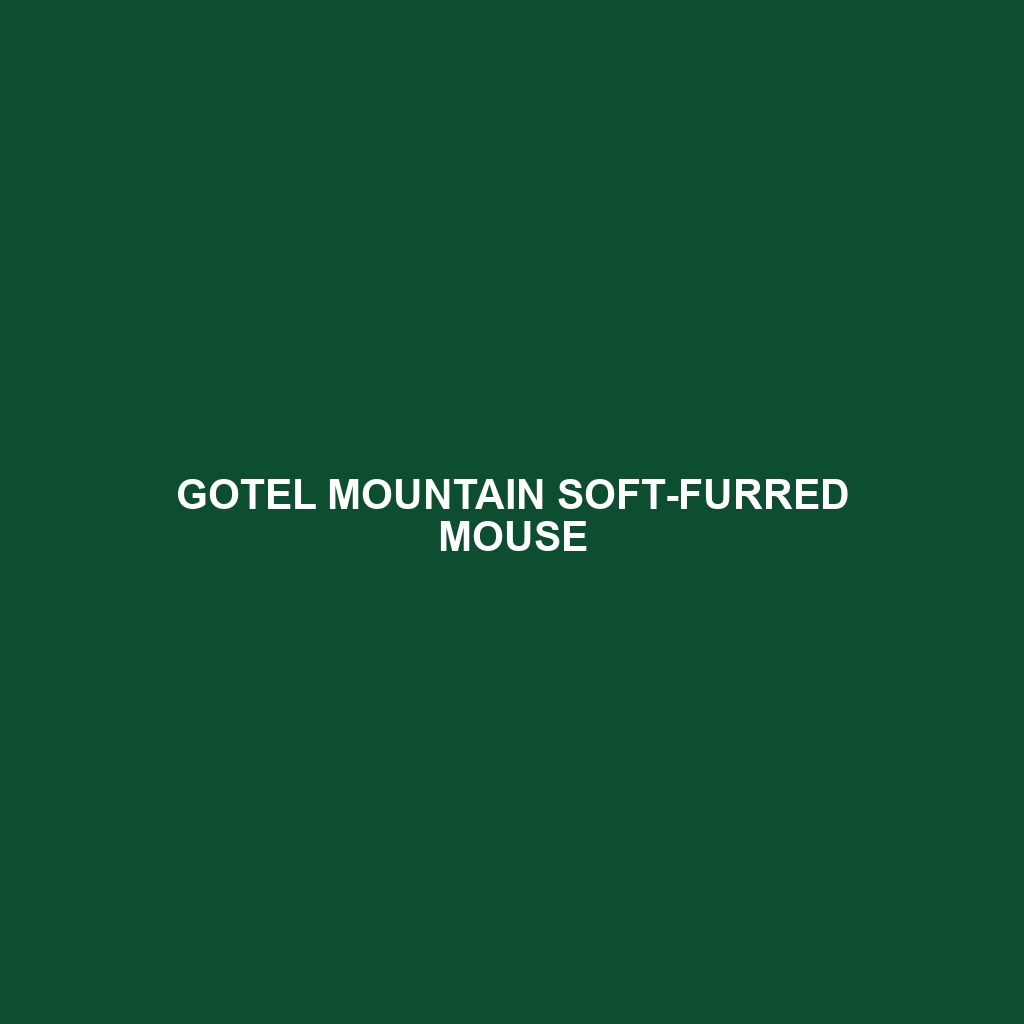Gotel Mountain Soft-furred Mouse
Common Name: Gotel Mountain Soft-furred Mouse
Scientific Name:
Habitat
The Gotel Mountain Soft-furred Mouse is primarily found in the rugged terrains of the Gotel Mountains, located in the northeastern region of Nigeria. This species thrives in montane grasslands and forest edges, which provide the ideal microhabitat rich in vegetation and shelter. The cool, moist climate of the high elevations supports its survival, making these environments crucial for the species’ existence.
Physical Characteristics
This small rodent typically measures around 10 to 12 cm in length, excluding its tail. Characterized by its soft, dense fur, it features a coloration that ranges from a light brown to a deeper chestnut shade, helping it blend into its natural surroundings. Its rounded ears and large, dark eyes make it particularly endearing, while its long, slender tail aids in balance and maneuverability. Distinctive features include a slightly flattened snout and a set of sharp incisors adapted for gnawing.
Behavior
The Gotel Mountain Soft-furred Mouse is predominantly nocturnal, engaging in activities such as foraging and nesting during the night. They are known for their agility and quick reflexes, which aid them in evading predators. Social interactions among individuals include vocalizations and scent marking, which play a critical role in territory establishment and communication.
Diet
This species is primarily herbivorous, with a diet consisting of seeds, fruits, and tender plant shoots. Gotel Mountain Soft-furred Mice are also known to consume fungi and occasionally insects, showcasing their adaptability in feeding habits. Their ability to dig and explore in search of food sources makes them an integral part of their habitat.
Reproduction
The reproductive habits of the Gotel Mountain Soft-furred Mouse include breeding during the warmer months, typically from late spring to early autumn. Female mice can give birth to litters of 2 to 6 offspring after a gestation period of about 25 days. The young are altricial at birth, relying heavily on maternal care and nourishment until they are capable of independent living within a month.
Conservation Status
The Gotel Mountain Soft-furred Mouse is currently classified as ‘vulnerable’ due to habitat destruction and climate change. The shrinking of its montane habitat poses a significant threat, highlighting the need for conservation efforts to protect this unique species and its environment.
Interesting Facts
Did you know that the Gotel Mountain Soft-furred Mouse is often seen as an indicator species for the health of montane ecosystems? Their presence reflects the biodiversity and ecological balance in the regions they inhabit. Additionally, these mice have been known to exhibit fascinating social behaviors, such as cooperative nesting, which is relatively rare among rodents.
Role in Ecosystem
The Gotel Mountain Soft-furred Mouse plays a vital role in its ecosystem as a seed disperser, helping to maintain plant diversity. By feeding on various seeds and fruits, this mouse contributes to the propagation of flora in the Gotel Mountains. Furthermore, as prey for larger predators, they serve as an essential component in the food chain, influencing the population dynamics of various species in their habitat.
